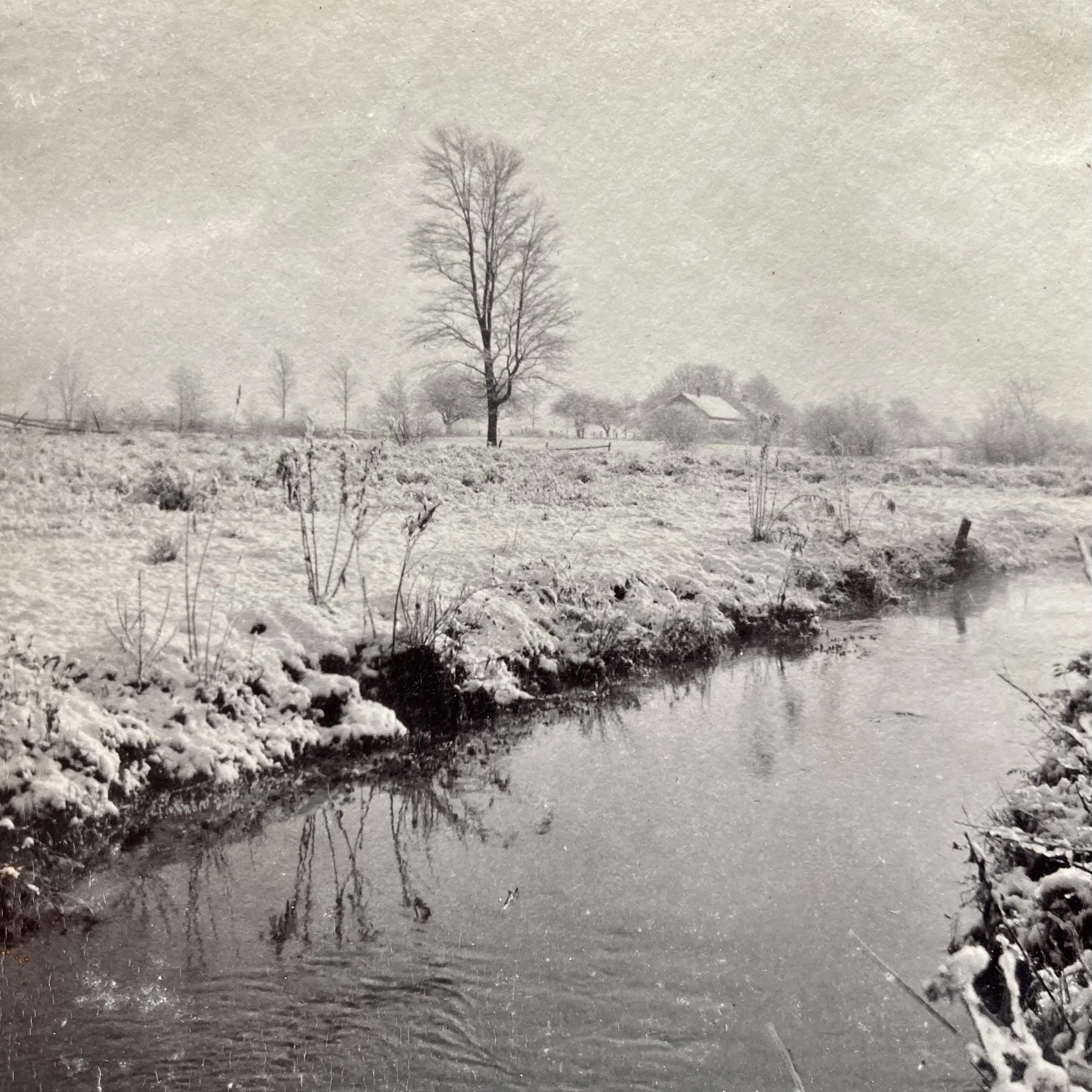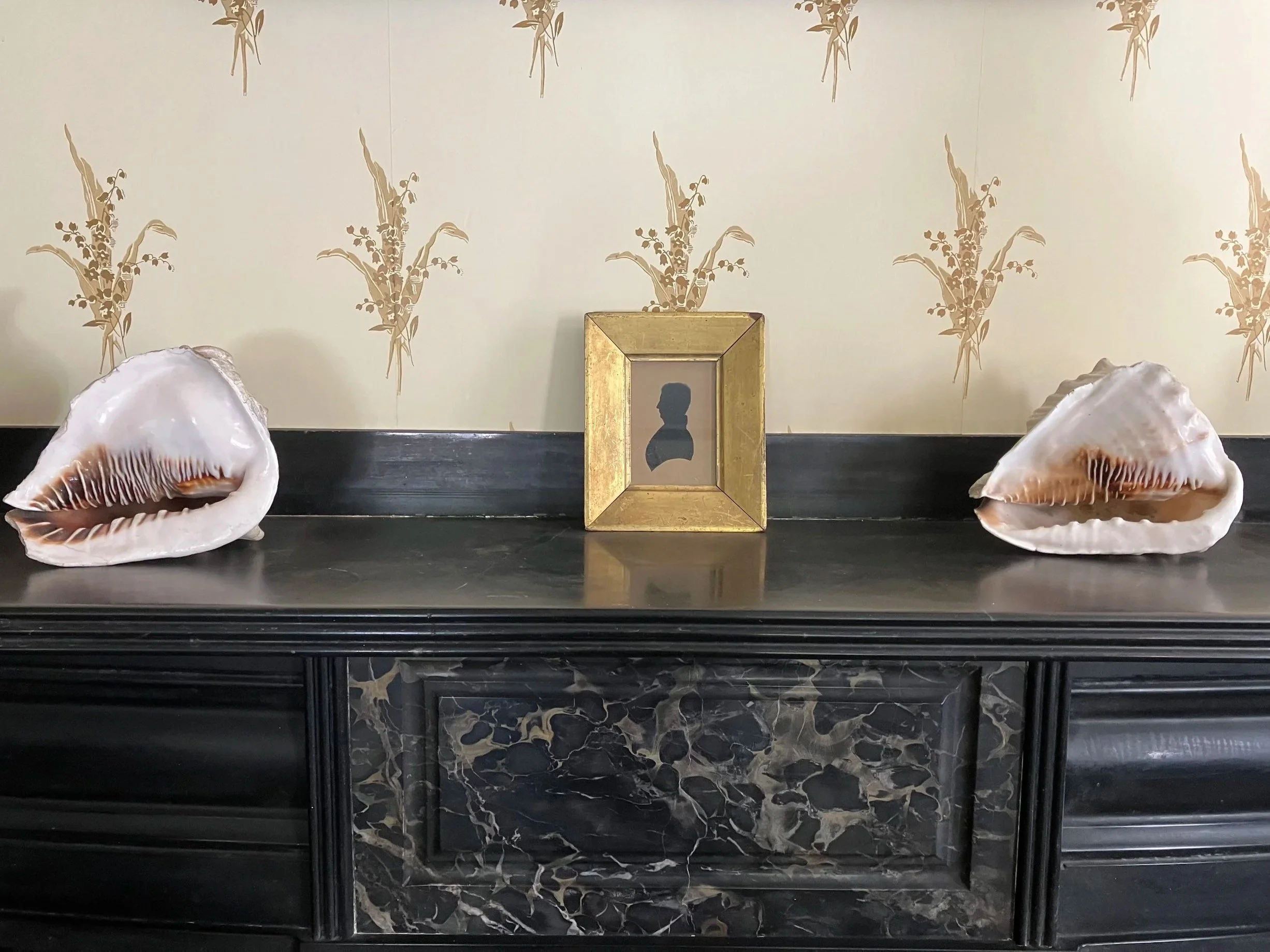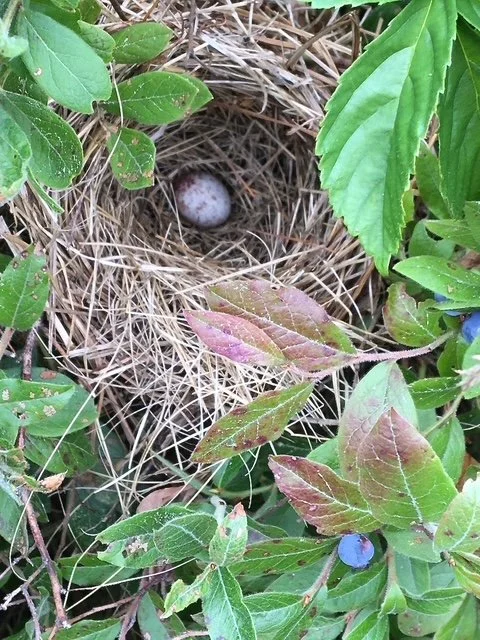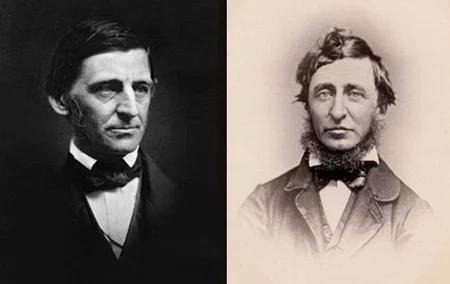
The Lyceum
A gathering place for engaging Emersonian content to educate & entertain.
Long-Ago Landscapes
Photos from an Emerson family album from the 1890s capture scenes from a Concord, MA winter over a century ago. Part of the greater Emerson House collection, this album is usually tucked away in a drawer and is being shared here for the first time.
“Sea-born Treasures”
A wintertime reflection on the origin of the seashells adorning several mantelpieces in the Emerson House in Concord, MA, and their connection to Ralph Waldo Emerson’s untimely loss of his younger brothers Edward and Charles.
Henry David Thoreau: Surveyor of the Soul
In his 2017 documentary film Henry David Thoreau: Surveyor of the Soul, Huey Coleman tells the story of Thoreau in his time and of the impact Thoreau’s writings and lifestyle have in our time. The film will be broadcast on Maine Public Television again this week and is also available to stream on demand.
Opening Lines for Earth Day
This year, the spring reopening of the Emerson House coincides with the 55th anniversary of Earth Day. In promoting environmental protection and celebrating the web of life, Earth Day reflects Ralph Waldo Emerson’s own reverence for nature—a common theme in his writings. Today, and beyond, we find inspiration in Emerson’s poems—his words exalting the wisdom of a bee; the beauty of a wildflower; the sentience of a tree.
A Rare Film Find
A 15-minute silent film about Ralph Waldo Emerson from the 1920s. Selections from his life and writings are illustrated with black-and-white footage from around the town of Concord, Massachusetts, including the Old Manse, the Emerson House, Sleepy Hollow Cemetery, and the Old North Bridge.
Dispatch from Argentina
A talk given by Professor Gustavo A. Brandariz (University of Buenos Aires) on the idea of ‘nature’ in the works of Emerson, Thoreau, Sarmiento, Hudson and Martínez Estrada. Recorded in November 2024 as part of an international meeting honoring Argentinian writer Ezequiel Martínez Estrada on the 60th anniversary of his death. The linked video is in Spanish.
Margaret Fuller
The friendship between two intellectual powerhouses of the mid-nineteenth century—Margaret Fuller and Ralph Waldo Emerson—began with a visit to Concord in 1836. Fuller later joined the “Transcendental Club” and her book Woman in the Nineteenth Century—the first major feminist work in America—grew from an essay published in The Dial magazine under Emerson’s editorship.
Mary Moody Emerson
Beginning a series on the strong women in Ralph Waldo Emerson’s life with a profile of his Aunt Mary Moody Emerson, who helped raise him after his father died and had a profound influence on his life and works. Credited as being his “earliest and best teacher,” Mary laid the foundation of Transcendentalism for her nephew and was an inspired writer in her own right. She was also active in the antislavery and women’s rights movements.
Christopher Cranch: Transcendentalist, Artist, and Follower of Emerson
Reprinted from The Public Domain Review, this essay explores the friendship of Transcendentalist illustrator Christopher Cranch and Ralph Waldo Emerson. Cranch’s collection of humorous sketches inspired by phrases from Emerson’s Nature—including his famed “transparent eyeball” drawing—is considered one of his greatest achievements.
Emerson and Thoreau: Companions on a Journey of Self-Discovery
Emerson and Thoreau met in the spring of 1837 and became lifelong friends. In addition to their affinity for Concord, they shared a strong belief in the importance of nature in developing creative and independent thinking. Thoreau lived with the Emerson family for several years and built the cabin of Walden on land owned by Emerson.
The American Scholar: Emerson’s Call to Awaken American Thought
An examination of the themes and context of Emerson’s momentous 1837 speech, "An Oration, Delivered before the Phi Beta Kappa Society at Cambridge,” later retitled “The American Scholar.” At the time, Emerson was just embarking on his remarkable 40-year career as an essayist, poet and speaker. His mind was racing with new ideas designed to increase individual expression and promote the importance of nature to thought and literature, and the Transcendental Club was founded soon thereafter.
Winter Reflections
Excerpts on the wonders of winter from Emerson’s poems, essays, and other writings, accompanied by recent photos of the snowy landscapes around his Concord home.












